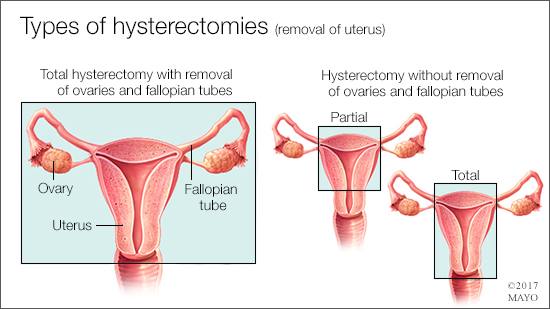-
Cancer
Mayo Clinic Minute: Minimally invasive hysterectomy

A hysterectomy can treat many gynecologic conditions, including fibroids, painful periods and cancer, such as endometrial, cervical, ovarian and uterine cancers.
Dr. Megan Wasson, a gynecologic surgeon at Mayo Clinic, specializes in minimally invasive surgery. She says the decision to undergo a hysterectomy is highly individualized, based on each patient's specific needs.
In many cases, a minimally invasive approach is an effective treatment. This type of surgery can help patients heal faster with less pain and a shorter recovery.
Journalists: Broadcast-quality video (1:00) is in the downloads at the end of this post. Please courtesy: "Mayo Clinic News Network." Read the script.
Minimally invasive surgery uses small incisions and special tools, causing less damage to the body than traditional surgery.
"Any minimally invasive approach, whether that's vaginal, laparoscopic, robotic — that's going to be associated with a very fast recovery. The vast majority of the time, patients are able to leave the hospital the same day," explains Dr. Wasson.
The most common gynecologic surgery is hysterectomy — the removal of the uterus.

"The vast majority of the time we are able to complete hysterectomy through a minimally invasive approach. The most minimally invasive is a vaginal hysterectomy, which does not require any incisions on the abdomen," she says.
Laparoscopic hysterectomy is another approach.
"We separate the uterus from all of the surrounding tissue, and then we remove it. And then we do still need to do a hysterectomy through a larger incision called a laparotomy, at times. Most commonly that's going to be in the setting of a cancer or if there are extremely large fibroids," says Dr. Wasson.
Dr. Wasson says treatment is not one-size-fits-all, and she encourages patients to ask their healthcare team questions.
Related posts:
- Mayo Clinic Minute: When to seek care for pelvic pain
- Mayo Clinic Minute: Endometrial cancer associated with polycystic ovary syndrome
- Mayo Clinic Minute: Health disparities in gynecologic cancers







